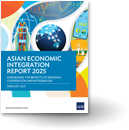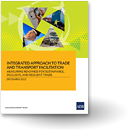Cross-border Infrastructure
South Asia Regional Initiative for Energy Integration
Over the last two decades South Asia has been one of the fastest growing regions in the world, with an average annual growth rate of 6% as measured by GDP per capita. Yet despite this impressive macroeconomic growth, the energy sector in the region has not been able to keep pace, and continues to experience chronic problems of shortage of supply and poor quality of service. South Asia’s energy security dilemma is one of the signal energy development challenges of the 21st century critical to the economic future of almost 1.5 billion people and the political future of one of the world’s most volatile regions. Given this dilemma the only long-term solution is the sustained increase in regional energy cooperation among South Asian nations. South Asia Regional Initiative/Energy’s (SARI/E) role over the past decade in advocating energy cooperation in South Asia has transited to the next phase of advancing regional energy integration and Cross-Border Energy Trade in eight South Asian Countries (Afghanistan, Bangladesh, Bhutan, India, Pakistan, Nepal, Sri Lanka & Maldives). This new phase titled South Asia Regional Initiative for Energy Integration (SARI/EI) is designed to build upon SARI/Energy’s successful initiatives of the past to move South Asian countries towards increased regional energy security. The program will address policy, legal, and regulatory issues related to energy in the region; promote transmissions interconnections; and work towards establishing a regional market exchange for electricity.
Integrated Research and Action for Development (IRADe) through a competitive process was selected by U.S. Agency for International Development (USAID) for the implementation of the South Asia Regional Initiative for Energy Integration (SARI/EI) program. During this five year program (2012-2017), SARI/EI programme will work to promote integration of energy systems and enhance Cross-Border Energy Trade (CBET) among the participating South Asian countries.
News
- Pakistan plans to sell excess power to Central Asia in winter season via [Central Asia South Asia Electricity Transmission and Trade Project] The News International - Pakistan22 Nov 2023
- [People's Republic of China] set to build new Sri Lanka refinery, says ministerThe Hindu1 Nov 2023
- Nepal, India, Bangladesh power trade agreement in ‘final stage’, says envoyHindustan Times28 Sep 2023
- Bangladesh, India, Nepal near 'milestone' electricity trade dealNikkei25 Jun 2023
Opinions and Editorials
- Bangladesh-Nepal energy cooperation; the horizon of new possibilitiesThe Himalayan Times7 Sep 2020




